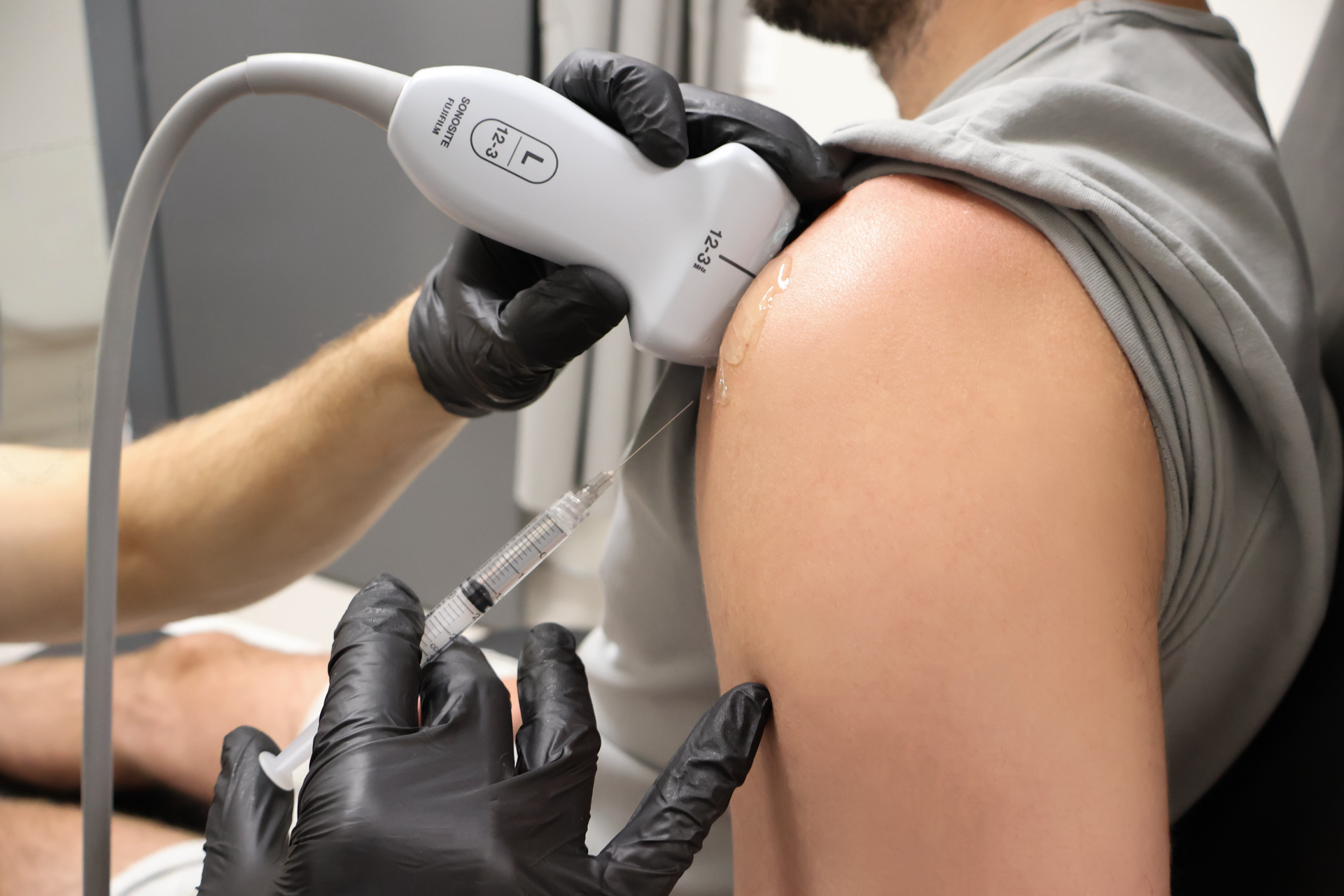
ROTATOR CUFF TEAR
The shoulder is one of the most mobile joints in the body, allowing us to perform a variety of daily tasks. Whether we’re throwing a ball, lifting a box, or picking up a toddler, we rely on the tendons and muscles for stability and strength—making it important to get proper care at a Red Deer health clinic when issues arise.
The shoulder muscles work together for smooth movement, but an injury or tear in tendons can cause pain and limit motion. A rotator cuff tear, which can be partial, full, or complete, typically results from aging, overuse, or sports injuries.
SYMPTOMS
Pain with overhead movements
Pain with sleeping on your shoulder or side
Limited range of motion, or a pinching sensation
Weakness when lifting or gripping objects
Pain with raising your arm to the side or behind your back
DIAGNOSIS
We start with a full history and medical exam to assess your function and often use orthopedic tests to diagnose a rotator cuff tear. An ultrasound at Horizon can help detect tears, tendinosis, or bursitis, and additional imaging may be ordered if needed.
TREATMENT
Non-surgical approaches such as ultrasound guided injections could help in reducing inflammation, stimulating a healing response, and improving function. This includes: Platelet rich plasma, Prolotherapy and Cortisone.
Light loading and rehabilitation of the tendons with exercise may reduce pain and improve function.
Scapular stabilization exercises.
Isometric, concentric and eccentric exercises.
Active release technique (ART), Graston, or Cupping.
Bracing.
Some cases may require surgical intervention.
Medication (NSAIDS).
If untreated, these injuries can lead to more pain and reduced function. Other common issues that may occur with a rotator cuff tear include shoulder impingement, tendinosis (thickening of a tendon), and bursitis.

